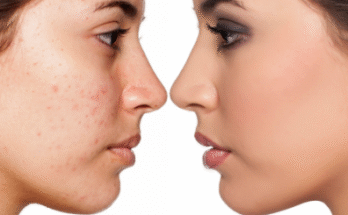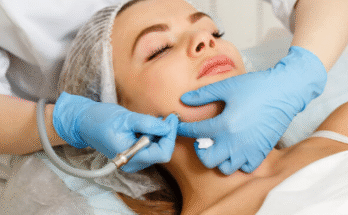For many people, acne feels like a stubborn problem that refuses to go away. It can appear at the most inconvenient times and sometimes lingers long after the teenage years. The good news is that clear skin is not just a dream. With the right daily habits and gentle care, you can help your complexion stay fresh, smooth, and confident. Let’s explore some simple yet effective ways to manage acne and promote healthier skin.
The first step is understanding what acne really is. Pimples, blackheads, and whiteheads are caused when pores become clogged with oil, dead skin cells, and sometimes bacteria. Stress, diet, and hormonal changes can also play a role. While the causes may differ from person to person, good skincare practices often make a noticeable difference no matter what triggers your breakouts.
One of the most important habits for clear skin is consistent cleansing. Washing your face twice a day with a gentle, non-comedogenic cleanser helps remove dirt, oil, and impurities without irritating the skin. Harsh scrubbing may feel satisfying, but it can actually make acne worse by causing redness and inflammation. A mild approach is always better when it comes to acne care.
Moisturizing might sound unnecessary if your skin is oily, but hydration is essential for balance. When skin is too dry, it may produce even more oil, leading to clogged pores. A lightweight, oil-free moisturizer keeps your skin nourished without adding extra shine. Choosing products labeled “non-comedogenic” ensures they are less likely to block pores.
Exfoliation is another useful step, though it should be done with care. Gentle exfoliating products help remove the buildup of dead skin cells that can trap oil and lead to breakouts. Once or twice a week is usually enough. Overdoing it may cause irritation and make acne flare up, so moderation is key.
Sun protection often gets overlooked in acne care, but it is just as important. Some acne treatments make the skin more sensitive to sunlight, which can cause dark spots or irritation. Applying a broad-spectrum sunscreen with a light, oil-free formula helps shield your skin while avoiding the heavy, greasy feel of traditional sunscreens.
Lifestyle also plays a role in maintaining clear skin. Staying hydrated by drinking enough water throughout the day helps your body function properly, including your skin. A balanced diet rich in fruits, vegetables, and whole foods provides vitamins and antioxidants that support a healthy complexion. While no single food causes acne, reducing excess sugar and highly processed foods may improve overall skin clarity for some people.
Managing stress can also reduce flare-ups. When stress levels rise, your body produces hormones that can trigger breakouts. Finding ways to relax, whether through exercise, meditation, or hobbies, not only improves your mood but can also help keep your skin calmer. Getting enough sleep each night is another essential step, since tired skin often looks dull and more prone to blemishes.
It is also important to remember that patience is part of the process. Acne does not disappear overnight, and it may take weeks of consistent care to notice a difference. Avoid the temptation to pick or squeeze pimples, since this often leads to scars and more irritation. Gentle persistence is the best approach.
If acne remains severe or persistent despite good care, consulting a dermatologist can provide additional solutions. Professional guidance may involve topical treatments, medications, or other specialized options tailored to your skin type.
Clear skin is not about perfection. Everyone experiences occasional blemishes, but building the right habits makes it possible to enjoy a healthier, brighter complexion. By combining gentle cleansing, proper hydration, sun protection, balanced lifestyle choices, and patience, you can discover your own clear skin secrets. Over time, these small daily actions can lead to lasting confidence and skin that feels truly refreshed.

